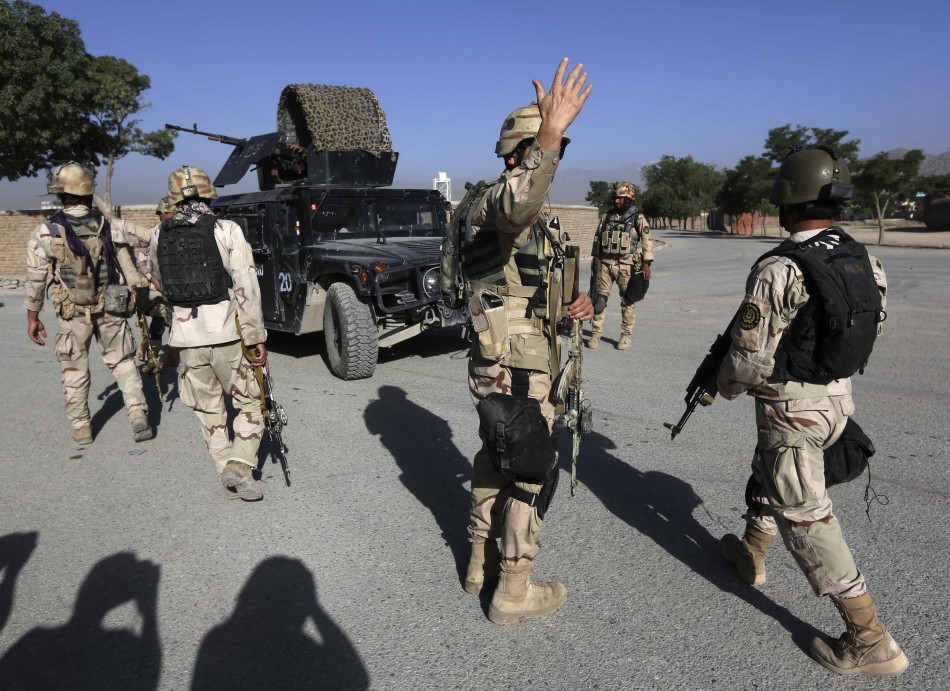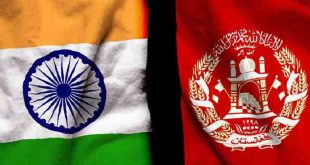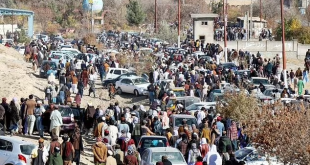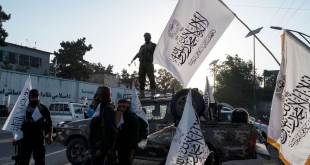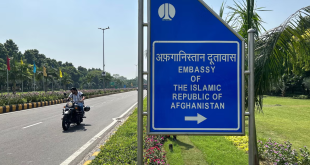Security situation remained challenging; differences between NUG leaders had deep impacts over foreign policy; 200,000 Afghans went to Europe; decrease in poppy production was due to bad harvest; investment decreased by 26%
AT-KABUL: The Center for Strategic and Regional Studies (CSRS) in its recent report said that 2015 was a very problematic year for Afghanistan as the National Unity Government (NUG) leaders were involved in internal disputes and failed to deliver on their pledges.
The report which is part of the CSRC’s weekly analysis series said that the peace negotiations between Afghan government and the Taliban insurgents were not successful. Daesh also began its activities in Afghanistan. Thus, security situation of the country remained fragile compared to the past 14 years. For the first time since ouster from power, the Taliban were able to control a major city, Kunduz, for two weeks and extended influence to northern parts of Afghanistan.
Economic situation
According to the statistics of the Asian Development Bank (ADB), in 2015, the growth rate of Afghanistan’s GDP (Gross Domestic Products) was 2.5 %, which shows a 1.3 % increase compare to 20151. However, the according to World Bank, the GDP growth was 1.9 %2. Industrial products also increased compared to the last year. In addition, due to political and security instabilities, people and investors lose confidence in the government, and the NUG also did not bring its promised reforms, the report said.
According to the report, in 2015, Afghani’s value decreased very much against US dollar. From the formation of NUG to the end of 2014, Afghani’s value against US dollar was approximately 58.18. In the first two months of the 2015, Afghani’s value against US dollar became improved. In January, one US dollar was equal to 57.76 Afghanis and then in February it decreased to 57.4 Afghanis against US dollar. In the first two months of the New Year, the value of Afghani decreased very much against US dollar and still it is decreasing and now (in the first week on
2016) the value of Afghani against US dollar was 68.78.
Investment
According to the Afghanistan Investment Support Agency (AISA), the amount of investment was decreased by 26% in the first nine months of 2015 compare to the first nine months of 2014. In the first nine months of 2014, $611 million was invested; however, in the first nine months of 2015, $448 million was invested.
The amount of investment in the construction field decreased by $83 million in the first nine months of 2015 compare to $200M in 2014, which shows a decrease of 58%. Moreover, investment in the fields of industry, agriculture and services was also decreased by 25, 12 and 9.63 percent accordingly, the report noted.
Corruption
The NUG in its first months had made a lot of promises related to tackling corruption. Some of its efforts on tackling corruption were made in 2015. However, the government’s policy in this regard was so rustic and sometimes, its positions were contradictory, the report highlighted.
Foreign policy
According to the report, the principles of Kabul’s foreign policy in 2015 were economic integration, maintenance of peace and economic development of the country.
Except for the statement about supporting Saudi Arabia‘s position in the issue of
Yemen and ups and downs in relations with Pakistan, Kabul had good ties with entire neighbors in 2015. Meanwhile, its relations were good with regional countries including Turkey, India and Saudi Arabia.
The Afghan government, however, had not got any remarkable achievements regarding peace, the report underlined.
“2015 was a difficult year for Afghanistan in terms of security, and the war between the government and armed oppositions was intensified compared to the previous years. In 2015, the war extended to the areas which were previously rather safer, and Taliban’s war tactics were also changed. Taliban, for the first time, used the method of seizing regions and preserving their domination instead of guerrilla wars. For this reason, a number of districts and one of the country’s major and strategic cities fell into the hands of the Taliban,” the report said
Narcotics
For the first time, cultivation and products of narcotics became decreased in 2015 compared to the past years. According to UNODC’s 2015 annual report, poppy were cultivated in 183000 hectares, which show a decrease of 19% compare to
- In addition, the poppy production was 3300 tons which shows a decrease of
48% compare to 2014.
Most of the poppy was cultivated in insecure places; the amount of poppy cultivation was high in Helmand, Farah, Kandahar and Badghis provinces, only 14
Afghan provinces were poppy free and the in the remaining 20 provinces poppy was cultivated.
Decreasing of poppy cultivation was not the policy of the NUG, but according to a survey of UN, decrease in the poppy production was due to bad harvest, the report added.
Regarding mass exodus of Afghans the report said that due to poor economic situation and unemployment, tens of thousands of people fled the country while the condition of Afghan refugees also remained miserable.
Refugees
At the end of 2014, Pakistani insurgents attacked on a military school in
Peshawar; as a result Pakistani anti-terrorism policy was changed, with deeply impacted Afghan refugees in Pakistan. Therefore, 95,042 unregistered Afghan refugees have repatriated since January of 2015 through Torkham port. But with the passage of time, repatriation of Afghan refugees from Pakistan decreased. On the other hand, roundabout 50,000 registered Afghan refugees have repatriated since January of 2015.
Tens of thousands of Afghan youths have also crossed into Europe through dangerous routes in 2015 due to insecurity and unemployment; however, the real number of Afghan refugees which went to Europe in 2015 is unknown, but according to UN estimation, among one million immigrants which went to Europe through crossing the Mediterranean sea, 19% of them were Afghans, which makes about 200,000 persons, the report pointed out.
Internal disputes
According to the report, President Muhammad Ashraf Ghani and Chief Executive Officer Abdullah Abdullah had differences on various issues and as a result the cabinet is still incomplete and many governors serve as caretakers. The dispute over the Electoral Commission still remains and the distribution of the Electronic IDs are yet to be allowed. In addition, domestic disputes of NUG have had deep impacts over foreign policy of Afghanistan.
 Afghanistan Times
Afghanistan Times
